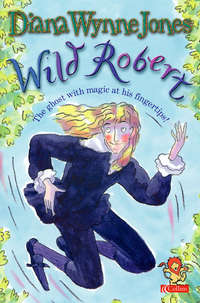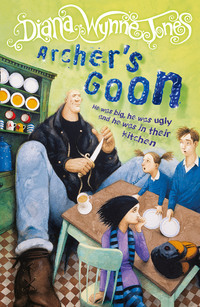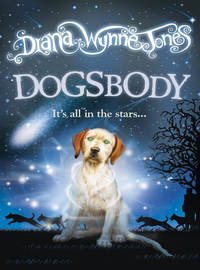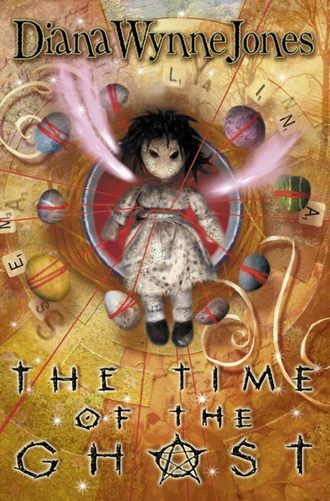
Полная версия
The Time of the Ghost



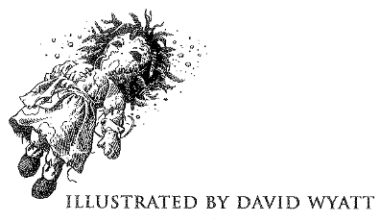


HarperCollins Children’s Books is a division of HarperCollinsPublishers Ltd. 1 London Bridge Street London SE1 9GF
www.harpercollins.co.uk
First published by Macmillan Children’s Books 1981
First published in paperback by Collins 2001
Text copyright © Diana Wynne Jones 1981
The author and illustrator assert the moral right to be identified as the author and illustrator of the work
A catalogue record for this book is available from the British Library
All rights reserved under International and Pan-American Copyright Conventions. By payment of the required fees, you have been granted the non-exclusive, non-transferable right to access and read the text of this ebook on-screen. No part of this text may be reproduced, transmitted, down-loaded, decompiled, reverse engineered, or stored in or introduced into any information storage and retrieval system, in any form or by any means, whether electronic or mechanical, now known or hereinafter invented, without the express written permission of HarperCollins ebooks
HarperCollinsPublishers has made every reasonable effort to ensure that any picture content and written content in this e-book has been included or removed in accordance with the contractual and technological constraints in operation at the time of publication
Source ISBN: 9780007112173
Ebook Edition © DECEMBER 2012 ISBN: 9780007383528
Version: 2018-07-09
To my sister Isobel and to Hat
Table of Contents
Title Page
Copyright
CHAPTER ONE
CHAPTER TWO
CHAPTER THREE
CHAPTER FOUR
CHAPTER FIVE
CHAPTER SIX
CHAPTER SEVEN
CHAPTER EIGHT
CHAPTER NINE
CHAPTER TEN
CHAPTER ELEVEN
CHAPTER TWELVE
CHAPTER THIRTEEN
CHAPTER FOURTEEN
Keep Reading
Other titles by Diana Wynne Jones
About the Publisher
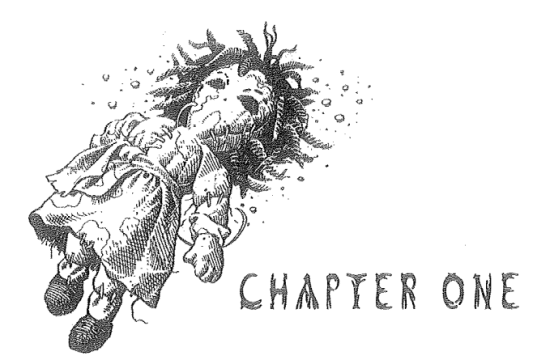
There’s been an accident! she thought. Something’s wrong!
She could not quite work out what was the matter. It was broad daylight – probably the middle of the afternoon – and she was coming down the road from the wood on her way home. It was summer, just as it should be. All round her was the sleepy, heavy humming of a countryside drowsing after lunch. She could hear the distant flap and caw of the rooks in the dead elms, and a tractor grinding away somewhere. If she raised herself to look over the hedge, there lay the fields, just as she expected, sleepy grey-green, because the wheat was not ripe by a long way yet. The trees were almost black in the heat haze, and dense, except for the bare ring of elms, a long way off, where the rooks were noisy specks.
I’ve always wanted to be tall enough to look over the hedge, she thought. I must have grown.
She wondered if it was the heavy, steamy weather that was making her feel so odd. She had a queer, light, vague feeling. She could not think clearly – or not when she thought about thinking. And perhaps the weather accounted for the way she felt so troubled and anxious. It felt like a thunderstorm coming. But it was not quite that. Why did she think there had been an accident?
She could not remember an accident. Nor could she think why she was suddenly on her way home, but, since she was going there, she thought she might as well go on. It made her uncomfortable to be reared up above the hedges, so she subsided to her usual height and went on down the road, thinking vague, anxious thoughts.
What’s happened to me? she thought. I must stop feeling so silly. I’m the sensible one. Perhaps if I ask myself questions, my memory will come back. What did I have for lunch?
That was no good. She could not remember lunch in any way. She realised, near to panic, that she could not remember anything about the rest of today at all.
That’s silly! she told herself. I must know! But she didn’t. Panic began to grow in her. It was as if someone was pumping up a very large balloon somewhere in the middle of her chest. She fought to squash it down as it unfolded. All right! she told herself hysterically. All right! I’ll ask something easy. What am I wearing?
This ought to have been easy. She only had to look down. But first she seemed to have forgotten how to do that. Then when she did—
Panic spread roaring, to its fullest size. She was swept away with it, as if it were truly a huge balloon, tumbling, rolling, bobbing, mindless.
There’s been an accident! was all she could think. Something’s awfully wrong!
When she noticed things again, she was a long way on down the road. There was a small house she somehow knew was a shop nestling in the hedge just ahead. She made herself stand still. She was so frightened that everything she could see was shaking – quivering like poor reception on the telly. She had a notion that if it went on shaking this way, it would shake itself right away from her, and she would be left with utter nothing. So she made herself stand there.
After a while, she managed to make herself look down again.
There was still nothing there.
I’ve turned into nothing! she thought. Panic swelled again. There’s been an accident! STOP IT! she told herself. Stop and think. She made herself do that. It took a while, because thinking seemed so difficult, and panic kept swelling through her thoughts and threatening to whirl her away again, but she eventually thought something like: I’m all right. I’m here. I’m me. If I wasn’t, I wouldn’t even be frightened. I wouldn’t know. But something has happened to me. I can’t see myself at all, not even a smear of shadow on the road. There’s been an accident! STOP THAT! I keep thinking about an accident, so there must have been one, but it does no good to say so, because every time I do, things just get vaguer. So I must stop thinking that and start thinking what’s the matter with me. I may be just invisible.
On that not altogether comforting thought, she took herself over to the hedge and – well – sort of leant into it. She had, as she leant, strong memories of the way a stout prickly hedge bears you up like a mattress, and sticks spines into you as it bears you.
Not this time. She found herself in the field on the other side of the hedge without feeling a thing. She could not even feel anything from the clump of nettles she seemed to be standing in. Seemed is the right word, she thought unhappily. Let’s face it. I’m not just invisible. I haven’t got a body at all.
She had to spend another while squashing down bulging panic after this. It does no good! she shouted at herself. In fact, she was beginning to see that the panic did positive harm. Each time it happened, she felt odder and vaguer. Now she could hardly remember coming down the road, nor why she had been coming this way in the first place.
It probably comes of not having a proper head to keep my thoughts in, she decided. I shall have to be very careful. She half put a non-existent hand to what she thought was probably her head, but took it away again. If I put my band right through, I might knock all the thoughts out, she said, forgetting she had already been through a hedge. Where am I?
The field had a path winding through it, and there was a stile in the hedge opposite, leading to somewhere with trees. As she looked at that stile, she had a very strong feeling that, beyond it, she would be able to get help. She went that way. Now she knew herself to be bodiless, she was almost interested by the way she moved, dangling and drifting, with her head about the height she was used to. She could rise higher if she wanted, or sink lower, but both ways made her uncomfortable. When she reached the stile, she started to climb it, out of habit. And stopped, feeling foolish. For a moment, she was glad no one was there to see her. Of course she could just go straight through. She did. Then she was in an orchard, a rather messy place that she seemed to be used to. The nettles, and the chickens pecking about, were rather familiar, and, as she passed a hut made of old doors and chairs and draped with soggy-looking old carpet, she had almost a twinge of recognition. She knew there would be a mildewy rag doll inside that hut. The doll’s name was Monigan.
How do I know that? she wondered. Where am I?
The fact that she did not know confused her. She dangled sideways across the orchard, avoiding trees out of what seemed to be habit, and found herself faced with a hedge again – a tall hefty hedge, which looked as impenetrable as a wood.
Well, let’s see, she said, and went through.
Here, she was more confused still. For one thing, she had a very strong sense of guilt. She was now somewhere she ought not to be. For another thing, it was all much less familiar here. It was a very sparse, open garden, much trampled, so that the grass was mostly bare earth. Beyond that, behind a line of lime trees, was a large red-brick building.
She drifted under the lime trees and inspected the red building. Bees buzzed among the flat, wet, heart shapes of the lime leaves, and little drops of lime liquid pattered down around (and through) her. Oddly enough, the bees avoided her. One flew straight at her face, and swerved off at the last minute. This comforted her considerably. There must be something of me for it to dodge, she told herself, staring at a church-like window in the red house. From behind the window came a buzz, quieter than the bees, but quite as perpetual. There was also a smell, distinct from the smell of lime trees, which she found she knew.
This is School, she said.
Maybe this was why she felt so guilty here. Perhaps she should be at school. Perhaps, at this moment, a teacher was looking up from a register and asking where she was.
This was alarming. It caused her to speed along the front of the red house to a small door she somehow knew would be there, and dart through it, to a dark space full of blazers and bags hung on pegs. No one was there. They were all in lessons, evidently. She sped on, through tiled corridors, wishing she could remember which was her classroom. She knew there was a rule about not running in the corridors, but she was not sure it applied to people without bodies. Besides, she was not running. It was more like whizzing.
She could not find her classroom. It was like a bad dream. And here she had an idea which made her much, much happier. It was a dream, of course. It was a bad dream, but a dream definitely. In dreams one could run without really running and often could not feel one’s body, and, above all, in dreams one was always urgently looking for something one could not find. She was so relieved that she slowed right down. And there, beside her, was a door labelled IV A.
That was her class, IV A. She was more relieved than ever, even though she did not remember the door looking like this. It was pointed, like the school windows, with thick ribs and long iron hinges on it. But behind the door she could hear a teacher’s voice droning on, and the voice was definitely one she knew. She put out her hand to turn the ring-like handle of the door.
Of course the handle went right through the part that seemed to be her hand. She stood back. A strong pricking where her eyes ought to have been suggested she might be going to cry disembodied tears. She knew she could go through the door by leaning into it, but she did not dare. Half the class would laugh and the rest would scream. The teacher would say—
Dreamlike, she had entirely forgotten she could not even see herself. I will do it! I will, I will! she said.
She put her non-hand to the handle again. This time, by exerting enormous effort, she managed to make it flip, and rattle gently.
The handle turned fiercely under her not-fingers. The door was wrenched open inwards from her. A voice roared, “When I ask you to decline mens, Howard, I do not mean mensa! Come!” the voice added, and a man’s bristly head looked round the door.
Uncertainly, she slipped through the opening into the sudden light of the classroom. It was more dreamlike than ever. They were all boys here, rows of boys, some leaning forward writing busily, some leaning back on two legs of their chairs looking anything but busy. There was not a girl in the room.
“Nobody there,” said the teacher, and clapped the door shut again.
She looked at him wonderingly. For some reason, she knew him enormously well. Every line of his bristly head, his bird-like face and his thin, angry body were known to her exactly. She felt drawn to him. But she was afraid of him too. She knew he was always impatient and nearly always angry. A name for him came to her. They called him Himself.
Himself rounded on the class, glowering. “May I remind you, Howard, that mens means the mind, and mensa means a table? But I expect in your case the two things are the same. No, no. Don’t scratch your head, boy. You’ll get splinters.”
The boy Howard seemed untroubled by the glower and the roar of Himself. “Not to worry, sir,” he said comfortingly. “I don’t think splinters are catching.”
“Fifteen all,” murmured someone at the back of the room. This caused a good deal of not-quite-hidden laughter.
She found she knew Howard too. He had a round, bright-eyed face like an otter’s. In fact, most of the boys at the desks were people she had seen before. She knew names: Shepperson, Greer II, Jenkins, Matchworth-Keyes, Filbert, Wrenn and Stinker-Tinker, to name just the front row. But she was beginning to think this was not her class after all. There should have been girls. And this was probably a Latin lesson. She had never learnt Latin.
I think I’d better go, she said apologetically to Himself.
“A test tomorrow on the Third Declension,” said Himself. “Make a note in your rough books.”
He had not heard her. To judge from the way everyone was behaving, no one could see her or hear her. She might just as well not have been there. Maybe that was not such a bad thing. Very much ashamed of her embarrassing mistake, she leant into the door and was in the corridor again, hearing Himself still, dimly, from behind the door.
Puzzling about how she knew everyone in that strange class so well, she wandered on. And, because she was not trying to remember where to go, she found herself going very certainly in a definite direction – downstairs, past a room with rows of tables, past a shiny door which gusted out smells of cooked cabbage and washing-up liquid, into a dark wooden hall with a green-covered door at the end of it. The green was the felty kind of cloth you find on billiard tables. She knew that door well. She suddenly wanted badly to be on the other side of it.
Before she got there, a lady came quickly through the shiny door, which bumped loudly and let out a gust of old gravy smell to join the smell of cooked cabbage. The lady hurried to a side table and picked up a pile of papers there, frowning. She was a majestic lady with a clear strong face. Her frown was a tired one. A bright blue eye between the frown and the straight nose stared at the papers. Fair hair was looped into a low, heavy bun on her head.
“Ugh!” she said at the papers. She looked like an avenging angel who had already had a long fight with the devil. All the same, the papers should have withered and turned black. The bodiless person in the corridor felt yearning admiration for this angel lady. She knew they called her Phyllis.
Under the frown, Phyllis said wearily, “Your father’s told you, I’ve told you. How many times have you been told to stay behind the green door, Sally?”
Warmth and comfort and pleasure swelled, as huge and swift as the balloon of panic had swelled earlier. Mother had seen her. Mother knew her. Mother knew who she was. She was Sally. Of course she was Sally. Everything was all right, even though she had gone and done an awful thing and interrupted Father while he was teaching. It was true she should have been on the other side of the green door. Coming into School was quite forbidden. Sally – yes, she was sure she was Sally – stood guiltily by the green door, wondering how to explain as Phyllis turned her blue eyes and tired frown towards her.
The blue eyes narrowed her way, and widened, as if Phyllis had suddenly focused on a distant hill. The frown vanished, and came back, deeper, making two little ditches at the top of Phyllis’s straight nose.
“Funny,” said Phyllis. “I could have sworn—” Her creamy face became reddish in the darkness. The words turned to mere moving of the lips. Phyllis twitched her shoulders and turned away uncomfortably.
Sally – she must be Sally, if Phyllis had said so – was astonished to find that other people besides herself could get embarrassed when they thought they were all alone. That embarrassed her. It was even worse to realise that Phyllis could not see her after all. Sally – she knew she was Sally now – turned and plunged desperately through the green door. She went so fiercely that the door actually lifted inwards an inch or so, and bumped back into place. Sally thought that Phyllis turned and stared at it as she went.
Beyond the door was the right place. First, a stone-flagged passage, which was chilly now and freezing in winter, where four coathooks held a mound of many coats. The open door at the end led to the room called the kitchen, also stone-flagged, but warmed by the sun that rippled in through the apple trees outside.
It was in its usual mess, Sally saw wearily. Books, newspapers and bread and jam were cast in heaps on the table. Someone had spilt milk on the floor. Sally longed to lift the front page of one of the newspapers out of the butter, but she was not sure she would be able to. She wondered whose turn it had been to do the washing-up. She could see a mountain of white school china sticking up out of the sink.
Well, this time I can’t do it, she was saying, when she saw what she took for a hideous dwarf standing on the draining board.
The dwarf had a tangle of dark hair and was wearing what seemed to be a bright green sack. The sack stuck out so far in front that Sally thought the dwarf was hugely fat at first, until she saw its long skinny arms propped on the edge of the sink. The dwarf was leaning forward, propped on its arms, so that a sharp white nose smeared with freckles stuck out from among the tangled hair, and so did two large front teeth. From between those teeth came a jet of water, squirting on to the white crockery in the sink. The dwarf appeared to have tied two knots in the front of its tangled hair to make way for the jet of water.
The dwarf squirted solemnly until the mouthful of water was used up. Then it relieved Sally’s funny vague mind considerably by standing up on the draining board. Two skinny legs with immense knobs for knees unfolded from under the green sack, making the dwarf about the right height for a small ten-year-old. Some of the bulge in front of the sack had been those knees, but quite a large bulge still remained. Fenella – she knew its name was Fenella now – took another mouthful of water from a mug in her hand and tried the effect of squirting the crockery from higher up. The jet of water hit a cup and sprayed off on to the floor.
That’s no way to do the washing-up, Fenella! Sally cried out. And what have you tied your hair in two knots for?
There was no sound, no sound at all, except the gentle hissing of Fenella’s spray on the cup and the floor, and the mild buzzing of flies round the table.
No one can hear me! Sally thought. What shall I do?
But Fenella said, “Look at this, Sally.” The white face, the freckles and two large shrewd eyes under the knots of hair turned Sally’s way. “Oh, I forgot,” said Fenella. “She’s not here.” At that, Fenella raised her sharp nose and her voice too and bellowed, “Charlotte – Cart! Cart, come and see this!” Fenella had the loudest possible voice. The window rattled and the flies stopped buzzing.
“Shut up,” said someone in the next room, obviously answering without listening.
“But I’ve invented something really horrible!” Fenella boomed.
“Oh, all right.”
There were sounds of movement in the next room – sounds like a heavy creature with six legs. The creature came in about level with Sally’s head. It looked like two people under an old grey hearthrug.
It’s only Oliver, Sally told herself quickly. She found she had backed almost into the passage again. Seeing Oliver suddenly often had that effect on people. Oliver was probably an Irish wolfhound, but he was larger than a donkey, and blurred and misshapen all over. He looked like a bad drawing of a dog. And he was almost impossibly huge. Oliver wouldn’t hurt a fly, Sally told herself firmly.
Nevertheless, it was alarming the way Oliver shambled straight towards the passage door and Sally. His huge heavy-breathing head – more like a bear’s head or a wild boar’s – came level with Sally’s non-face and sniffed loudly. His shaggy clout of tail swung, once, twice. A distant whining came from somewhere in his huge throat. Then, even more distant, a rumbling grew inside his shaggy chest. He stepped backwards, still rumbling, and sideways, and his tail dropped and curled between his legs. He could not seem to take his great blurred eyes off the place where Sally was. The whine kept breaking out on the rumble and then giving way to a growl again.
“Whatever’s the matter with Oliver?” Charlotte said from the door of the living room.
Charlotte was just as much of a shock to Sally as Oliver had been. She was built on the same massive scale. Like Oliver, she was huge and blurred. Blurred fair hair stuck out round her head. A blurred face, like a poor photograph of angel Phyllis, floated in the hair. She was the size of a tall fat woman, and cased in a dress that had clearly been designed for a little girl. There was about her, blurred and vast, the feeling of a powerful personality which, like her lumping body, had somehow got itself cased in the mind of a little girl. She was carrying a book folded round one finger. “Oliver’s scared stiff!” she said.
“I know,” said Fenella. Oliver was trembling now, rattling the things on the table.
Nobody bothered with Oliver after that, because the door behind Sally crashed open. Sally was barged aside like a kite in a stiff wind, and Imogen stormed in.
“Mr Selwyn turned me out of the music rooms again!” Imogen yelled. “It’s impossible! How am I going to perfect my art? How shall I ever be famous like this?”


